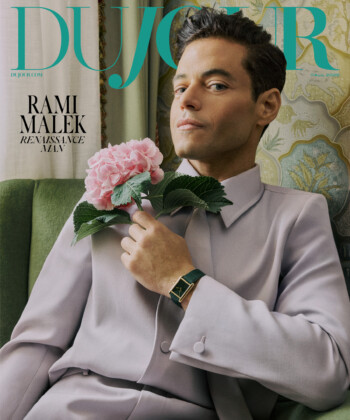It’s been said that listening to British trio London Grammar is something of a spiritual experience. Were this listener to wax lyrical, she might say that lead singer Hannah Reid is like a cathedral choir of one—her ethereal voice soaring over aching electro beats, up into the rafters and out through the stained glass windows. Church is a place for confession, so maybe it makes sense that the members of London Grammar are known for making some candid admissions. In interviews, they’ve spoken at length about crippling performance anxiety, the destructive nature of touring, their fear of fame’s unforgiving spotlight—and this time around, how they underwent a kind of musical amnesia.
“Making our second album was very difficult—harder than the first,” says Dan Rothman, the band’s charismatic guitarist. “Our tastes had developed and changed, and there’s just so much weird shit going on in the world. We’d also been on tour for so long that when we came back to the studio, we’d forgotten how to do it.”
The tour in question was for the band’s first album, If You Wait, which debuted in 2013 with hits like “Hey Now” and “Strong,” and which won them the iTunes Album of the Year award—along with a frenzied cult following. Often likened to The xx (a comparison they’ve called “lazy”), their music is a medley of soulful piano riffs, restrained electronic beats and reverberating balladry evoking the quandaries of heartbreak, the pain of youth—along with the panic of it slipping away. In June, London Grammar releases its hotly anticipated second collection, Truth is a Beautiful Thing, which throws the doors open on their sumptuous style with a sound that’s altogether more expansive, orchestral and upbeat. But true to form, despite the album’s hype, the band still admits to some anxiety about its reception.
“Generally, with your first album, you never consider the fact that anyone would actually listen to it,” says Dot Major, the trio’s keyboardist and drummer. Adds Rothman, “We’re not the kind of band, unfortunately, that can judge success on where we chart.” At least one fan would say that’s not the worst thing. As Elton John recently commented, “[London Grammar] is not the kind of music that gets in the charts these days, because there’s no room for intelligence in the charts.” So success must be measured in less quantitative ways. “I’m excited about playing festivals,” Rothman says. “I think that’s the real barometer of whether people have actually been listening to the new album. Either they’ll turn up to see us, or they won’t.” Even in the four years since they arrived on the scene, the music industry has changed dramatically, and the band says that navigating it often feels like a shot in the dark. “The Internet has been amazing for music,” says vocalist Reid. “But it’s changed how young people value it, because it’s so accessible. I hope streaming becomes monetized in a more ethical way for the artist. Especially for independent musicians.”
Although London Grammar is signed to Columbia Records, independence of process is deeply integral to their DNA. While many of today’s younger artists are opting for fame with quickie collaborations, they’re hoping to land in the “longevity category,” as Rothman says.
“I think a lot of artists now become defined by the collaborations they do,” he continues. “We haven’t done much collaborating. I think that’s probably because we needed to get our own shit together. It’s hard enough collaborating between the three of us. Maybe on the next album we’ll do it more…” he pauses for a moment. “I think Hannah’s voice would sound great on a Drake track.” Let’s hope Drake joins the congregation soon.
Main Image: From left to right: Dan Rothman, Hannah Reid and Dominic “Dot” Major in Ravenscourt Park, West London
Grooming by Lauren Reynolds using 3ina and Unite.






































